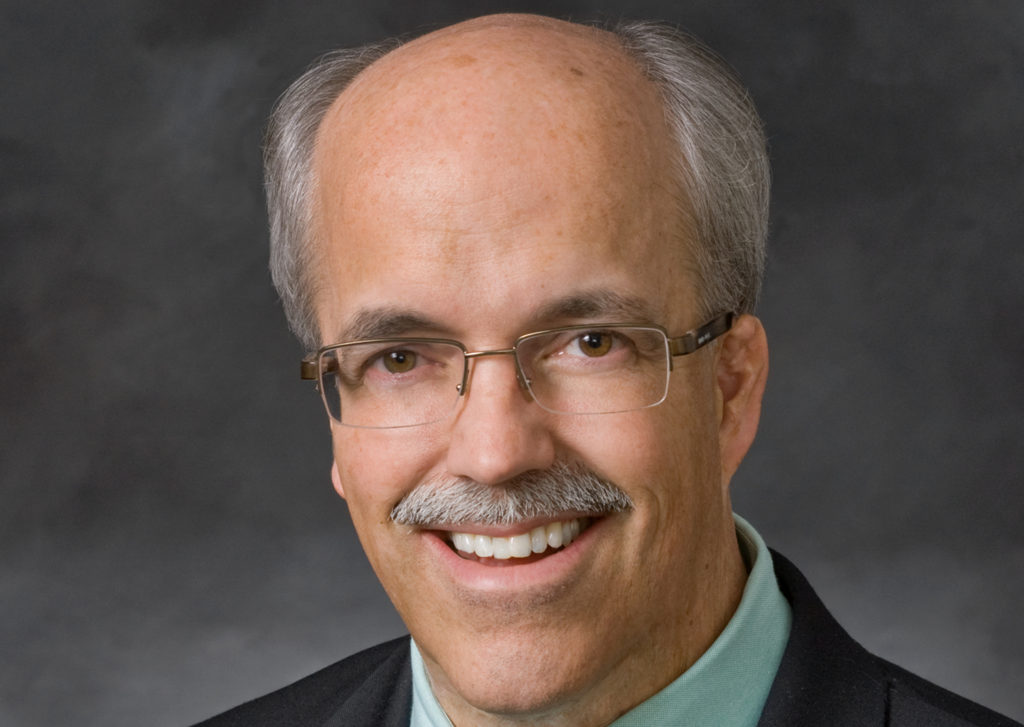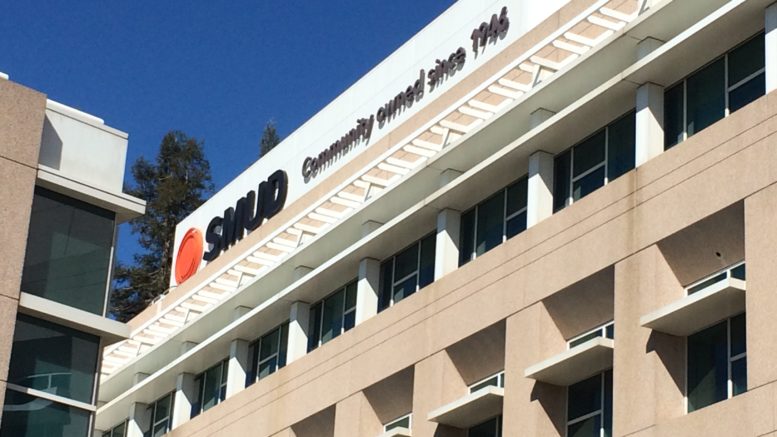SMUD’s new president outlines 2020 to-do list
By Rob Kerth
My six colleagues on the Sacramento Municipal Utility District board have afforded me quite an honor. They have elected me board president for 2020, and I officially take that post on Thursday, Jan. 16.
My mission is very simple: to help SMUD continue to do what it does best—keep the lights on, the rates low and the customers satisfied.
The board has learned that this is what the public most wants from SMUD, and the 2,300 people who work at SMUD are dedicated to making this happen.
The details of delivering these three core items are daunting. To keep things on track for you, the board depends on a great general manager. SMUD has enjoyed the leadership of a string of strong, and occasionally colorful, general managers. Our current general manager, Arlen Orchard, is retiring after years of wonderful service to the organization. The most important thing the board will do this year is select a replacement.
Watch for SMUD to stay the course on greenhouse gas reduction. Even though the United Nations is dawdling on adopting its year 2050 carbon neutral plan, the Trump administration is withdrawing the U.S. from the Paris climate treaty and California is straining with its 2045 plan, SMUD is ahead of schedule on its 2040 plan, years ahead of other utilities. In 2020, two new solar farms will switch on and SMUD’s wind farm upgrades will start. Together, these projects will provide “green” power about 80,000 homes.
As an engineer, I can’t pass up the chance to mention wires and transformers. SMUD will deliver capital improvements throughout Sacramento County to assure reliable delivery. Substations in central Sacramento, supply to south Folsom, a hydroelectric power tunnel improvement, a transmission line upgrade in the Pocket, and reconductoring (SMUD-speak for new wires) for economic development in older places are just the start of the list.

SMUD is in the midst of a good controversy about a reasonable level of subsidy for new, privately owned, solar panel installations. To help jump start the solar industry, California required SMUD customers to heavily subsidize rooftop solar. The plan worked. Solar power is now plentiful, and the cost is dropping fast. To be fair to all our customers, it is time to dial back the subsidy on new installations so we can buy even more, cheaper solar. The solar installers are alarmed about losing this cash. You will hear more about this, much more, as SMUD wraps up a year-long study of the public value of privately owned solar.
This coming year will also see SMUD engaged in programs to help customers save energy, rearrange their power consumption to save money and make the switch from gas to electric appliances and vehicles. Don’t miss out on this. Look to smud.org for more information.
No agenda would be complete without this: Voters carved SMUD out of PG&E territory more than 70 years ago because they wanted less costly, more reliable power. Today SMUD is one of the country’s top-rated utilities. Without SMUD, Sacramento County residents would pay PG&E an extra $700 million a year for electricity. If my agenda for 2020 works, this number will grow, like it has for more than 70 years.






Rob Kerth’s opinion piece touting SMUD’s so-called environmental leadership omitted four important facts that the public deserves to know.
1) SMUD is not ahead of schedule to reduce its global warming pollution to zero by 2045 as Mr. Kerth claims. The truth is that SMUD plans to keep its five fossil fuel power plants operating well beyond 2045. That means SMUD will still be emitting over 1 million metric tons of climate change pollution by 2040 – at a time when we urgently cease burning all fossil fuels.
2) SMUD is actively lobbying state officials to keep solar and battery storage off newly built homes in the Sacramento area. This would not only deny homeowners the chance to cut their energy bills, but also squander the opportunity to make clear energy from the rooftops of thousands of new homes in our community.
3) SMUD tried to tax rooftop solar users with a punishing monthly fee that would discourage most people from choosing solar going forward. Mr. Kerth erroneously refers to its rooftop solar program as a “subsidy” rather than telling the truth – that rooftop solar is actually saving the community money by reducing the need to expensive transmission lines and giant renewable energy farms.
4) SMUD also refuses to let renters easily benefit from solar energy created by solar panels on the rooftops of apartment buildings – something even PG&E allows.
Compared to the amazing leadership SMUD provided in the early 1990s with the closure of the Rancho Seco plant, today’s SMUD has lost their way.
SMUD can get back on track by committing to close down their remaining fossil fuel plants by 2030 and ending their attacks on rooftop solar. Instead, SMUD should double their efforts to help install solar panels and batteries in as many homes, apartments, schools, warehouses and other buildings as possible – so the community can be a part of the urgent transition to a clean energy future.
This aligns with the City of Sacramento’s recently adopted Emergency Climate Declaration and approximately harnesses the awesome willingness of this community to step up and be a part of the climate change fight.
If want to find back, join our Tell SMUD: Clean Power for the People Campaign. Please join us at one of 2 kick-off meetings.
Jan 27: 6:30 – 7:30pm Location: Arcade Library 2443 Marconi Ave, Sacramento, CA 95821
Jan 28: 7:00 – 8:00pm Location: North Natomas Library 4660 Via Ingoglia, Sacramento, CA 95835
RSVP: Tell.SMUD.Clean.Power@outlook.com
Good Points Lee!
As always, your precise analysis is on target.
Thank you.
Lee, are you aware of the impacts of batteries on the poorest and most vulnerable people in the world? If not, look up cobalt mining.
Lee, are you aware of the life cycle emissions of developing a large utility battery?
Lee, are you aware of the costs associated with making solar and wind a reliable power source, like using gas plants to fill in the variations in output?
Lee, do you know what happens to your electricity when generation does not precisely equal the amount of power customers use?
Lee, to retire all gas, there needs to be batteries to store the power. Imagine all of these batteries all over Sacramento. Look up what happens to lithium ion batteries when they over heat. Look up APS battery fire. Look up the environmental impact of battery disposal.
Lee, do your homework. Climate changing emissions reduction is needed, agreed. But you need to look at the big picture.